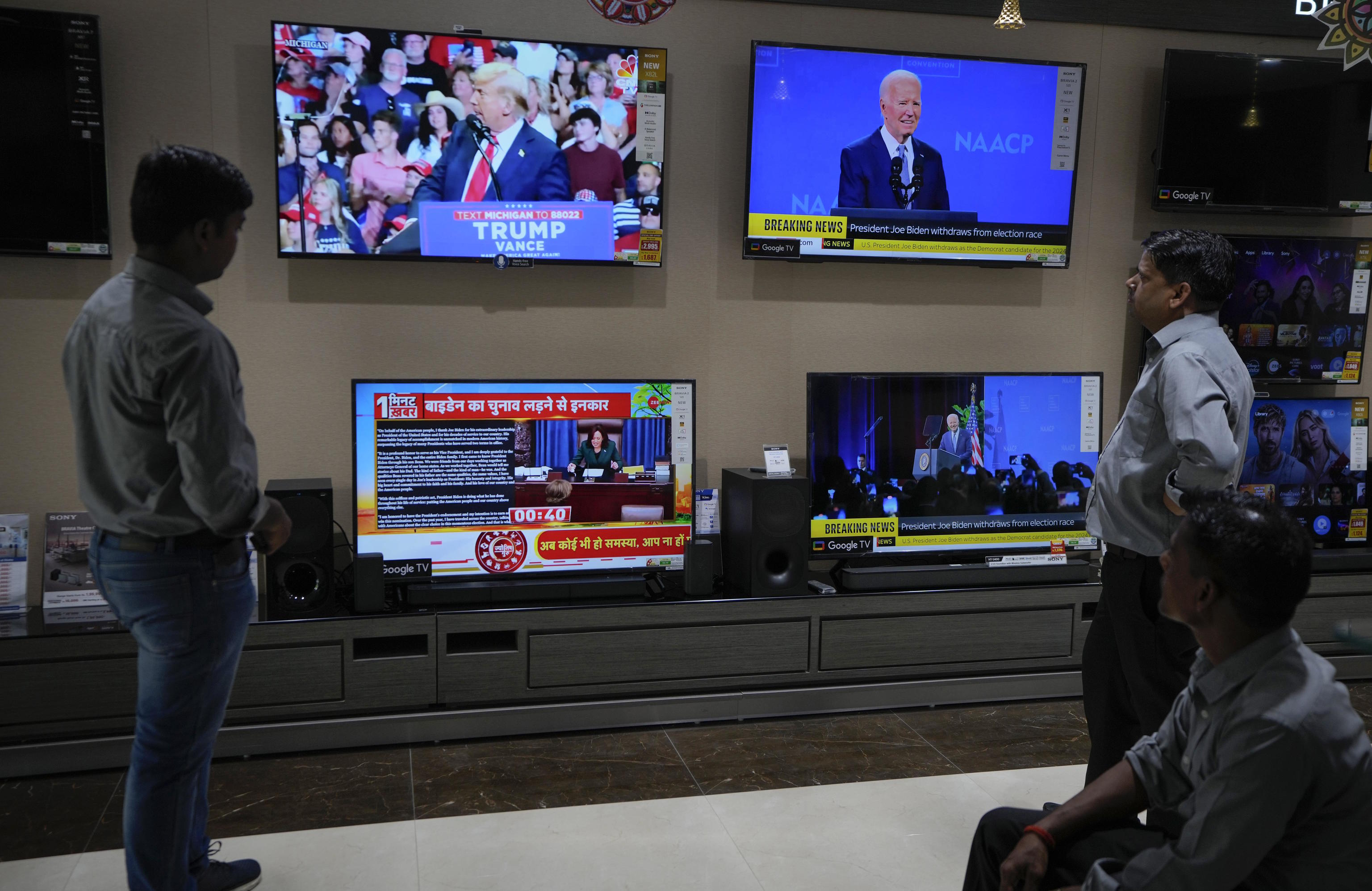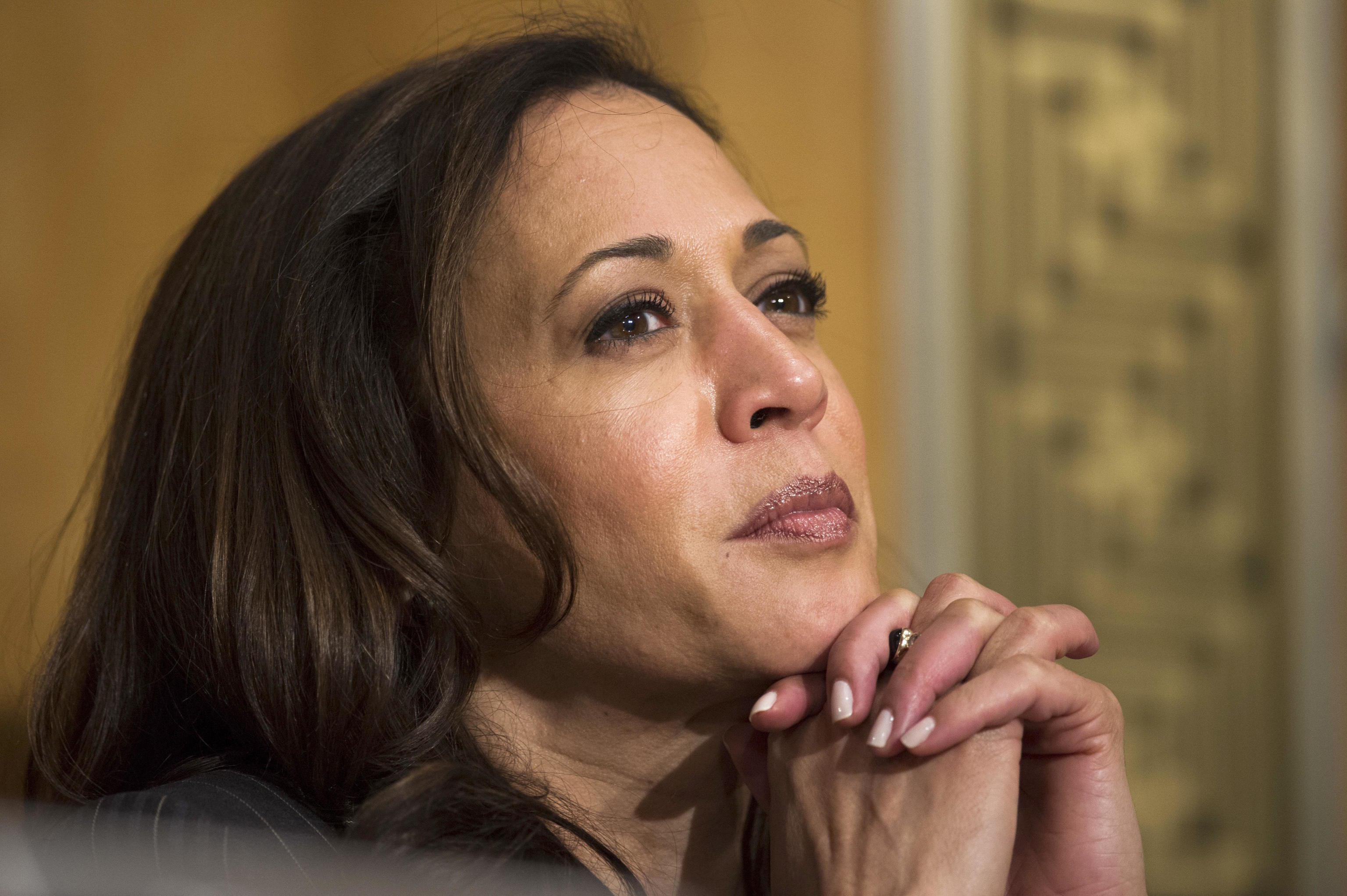"Although it has been my intention to achieve reelection, I believe it is in the best interest of my party and the country that I step down and focus exclusively on fulfilling my duties as president for the remainder of my term."
With these words, Joe Biden announced on Sunday his withdrawal from the presidential campaign, yielding to the pressure from Democratic Party leaders and his campaign donors (who have the final say), triggered three weeks ago when he had a disastrous performance in a televised debate with Donald Trump that raised doubts about his possible cognitive decline. Minutes later, Biden posted a message on social media announcing his "full support" for Vice President Kamala Harris to be his successor. She responded with a statement affirming that she will do everything "to unite the party and the nation," concluding that "together we will fight and together we will win." Biden did not inform Harris of his decision until a few hours before disclosing the letter.
From the Republican Party, the response has been to demand Biden's resignation from the Presidency. This was expressed by the White House candidate of that party, Donald Trump, who wrote on his social media platform Truth that the president is "not fit to serve" in office, something that was also stated on Friday by the senator from Florida and potential Secretary of State in a Republican government, Marco Rubio, and supported by the Speaker of the House, Mike Johnson.
The argument behind this idea is that if Biden does not have the faculties to carry out a campaign, he cannot be President of the United States either. Trump also told CNN that it will be easier for him to defeat Harris than Biden. Other Republicans, such as the former presidential candidate and Trump's rival - until last week - Nikki Haley, have been predicting for months that if the Democratic Party nominates someone other than Biden, they will easily defeat Donald Trump. Interestingly, not all Democrats believe this. However, Biden's physical and psychological deterioration over the last three months had made his position unsustainable for the party elite. Forcing Biden's exit was a very risky move that many saw as the only way to avoid an electoral disaster in the November 5th elections, where Trump maintains a slight but steady lead over Biden, whose physical and mental decline has sparked panic about what to expect in the next three and a half months.
Thus, Biden found that having the most transformative domestic policy of a Democratic president since Lyndon B. Johnson - including massive laws for energy transformation, digitalization, and the expansion of the Welfare State - did not help him improve his minuscule popularity and unprecedented internal rebellion in 168 years, since the Democratic Party dethroned its president Franklin Pierce at the Convention and replaced him with James Buchanan. Interestingly, Buchanan won the elections. A more recent case, in 1968, when Lyndon B. Johnson renounced re-election, does not bode well. The party erupted in a fierce Convention and lost the White House to Richard Nixon.
To avoid that scenario, Biden has anointed Harris as his heir. This decision is not based on political or personal affinity, as Harris's relationships with Biden - as well as with virtually the entire U.S. political class, and even with her own collaborators - are poor. It is a matter of political effectiveness. By appointing Harris, Biden's campaign can continue to use the approximately $2 billion in donations it has received and manages both directly and through theoretically independent groups - the so-called PACs and SuperPACs - which in practice are an extension of the electoral effort to put the president in the White House.
If that were not the case, the situation would be legally complicated. It is not clear that a campaign can transfer its resources to another, among other reasons because donors have made their contributions to a candidate - or a ticket of candidates, for president and vice president - not to another. Most likely, Biden's team would have to hand over the funds to the Democratic National Committee, which is the body dedicated to fundraising for the party, which then distributes it among different candidates, with the commitment that once there is an official candidate, it will be handed over. It would, in any case, be chaotic. PACs and SuperPACs, on the other hand, could operate independently, but their money is not subject to the campaign's guidelines, so it could go to other candidates.
Biden's replacement by Harris also minimizes tensions within Biden's campaign, dominated, logically, by people loyal to the president who would have significant difficulties working for other candidates, especially when some of those candidates have pulled the strings to politically eliminate the president, which is significant. Solely in terms of social media, Biden's campaign has collaboration agreements with 550 content creators. Legally, these individuals would continue to work for the same campaign, even if the candidate is different.
Finally, if Harris moves forward, she will not have to organize a campaign from scratch, a brutally time-consuming and costly process that would also make the vice president particularly vulnerable, as she is notorious for being a disaster as an organizer and team worker. In 2020, Harris ran for President and had the dubious honor of being a candidate who dropped out of the race before the primaries began because her campaign was chaotic and her ability to raise funds was nonexistent.
Harris's electability is thus a problem. The vice president's bad temper has led her to burn through two of her chiefs of staff, who left their positions in just three years, and within the Democratic Party, she has barely any temporary support, due to her role as vice president. This became evident with Biden's decision to exit the campaign. Although the president received unanimous praise from the Party - including from those who played a more active role in his ousting, especially former President Barack Obama, who has always looked down on the current White House occupant, and former Speaker of the House, Nancy Pelosi - several influential figures refrained from mentioning Harris.
Among them is Pelosi, who has privately expressed interest in what is called an open Convention, that is, without a decided winner, and the Democratic leaders of the Senate and the House of Representatives, Chuck Schumer and Hakeem Jeffries, respectively. Unlike Pelosi, their positions seem to be more a result of political calculation than a firm decision to block Harris's candidacy, something that many see as a tremendously risky option because the vice president, although even more unpopular than Biden during these three and a half years in office, is at least a person that voters know, and not a complete unknown in national politics, like the other names that have been considered to replace Biden.
Left-wing and Latino leaders in the party have been more direct and have, however, endorsed the vice president.

